12+ Best Free Database Hosting for 2025 (NoSQL, SQL)
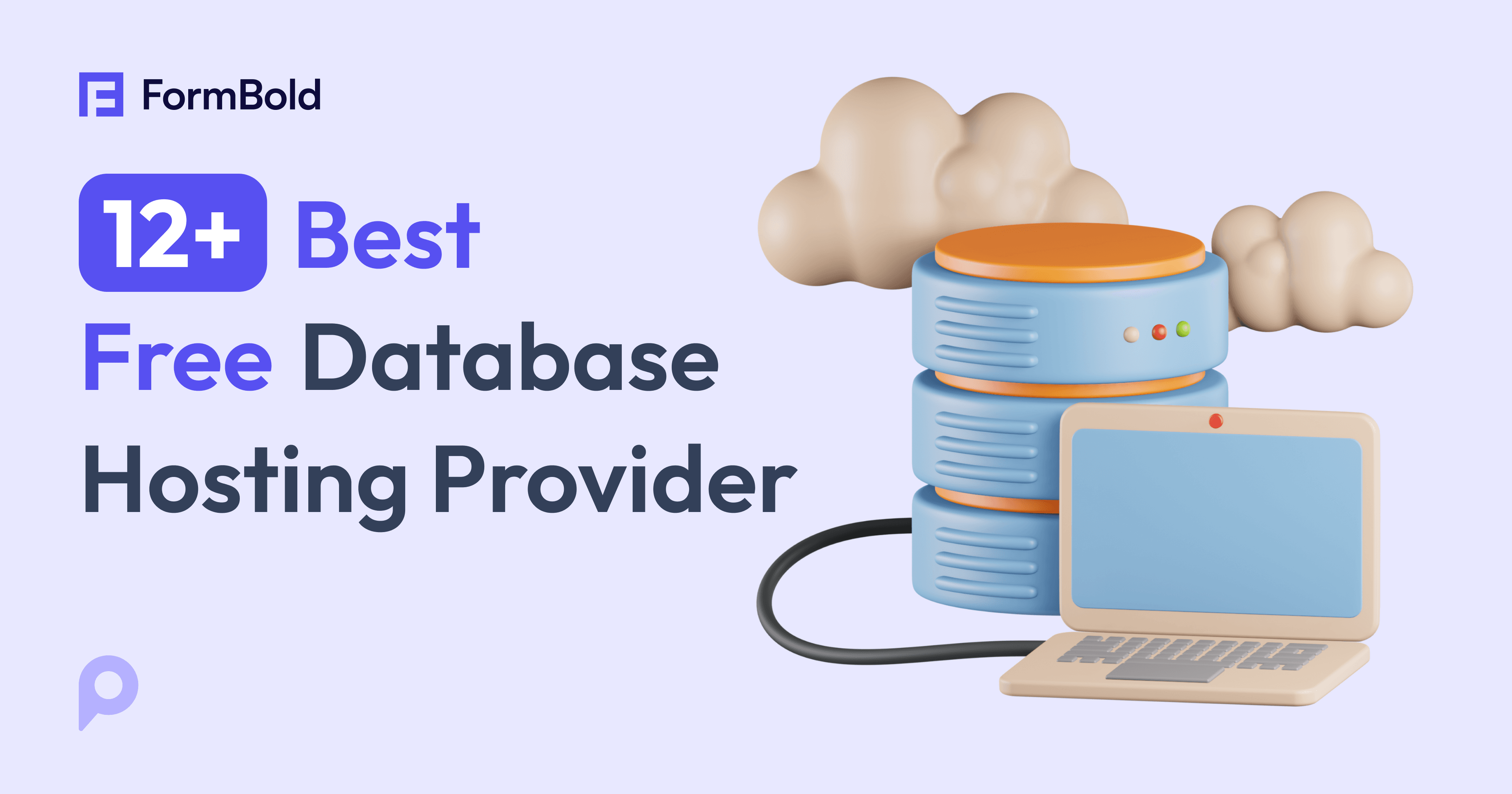
Looking for a way to manage databases securely without high costs? You are not alone. Many developers struggle with finding reliable and affordable solutions. Free database hosting providers solve this problem by offering powerful resources at no cost, ideal for small projects, testing, or personal apps.
These free cloud database hosting platforms allow you to build and experiment without worrying about expenses. However, keep in mind that free plans often come with feature limitations.
In this blog, discover the best free database hosting services you can use in 2025. But first, let’s quickly cover the basics of database hosting and why it matters for your projects.
What is Database Hosting?
Database hosting is a managed service optimized for running relational or non-relational databases. Unlike traditional web hosting, it focuses entirely on storing, managing, and retrieving structured data efficiently. A cloud-hosted database requires specialized hardware and configurations to ensure security, speed, and uptime, typically through a database management system (DBMS).
With database hosting, you can store large volumes of structured data, perform complex queries, and maintain critical information without managing physical servers.
Benefits of Using Database Hosting
Using a free hosted database offers several advantages, especially for developers and startups:
- Data Organization: Easily store and manage operational, analytical, and application data.
- Customization: Choose the type of database and hosting features based on your project needs.
- Automatic Scaling: Scale resources up or down based on usage without manual intervention.
- High Availability: Ensure zero downtime and seamless data access for users.
- Cost-Efficiency: Eliminate the need to invest in expensive infrastructure.
Free Database Hosting Providers
Now, let’s dive into the best platforms offering free database hosting, free NoSQL database hosting, and free online database hosting solutions.
For each provider, you’ll find a quick overview, storage capacity, pros, and cons to help you choose the best fit for your needs.
Supabase
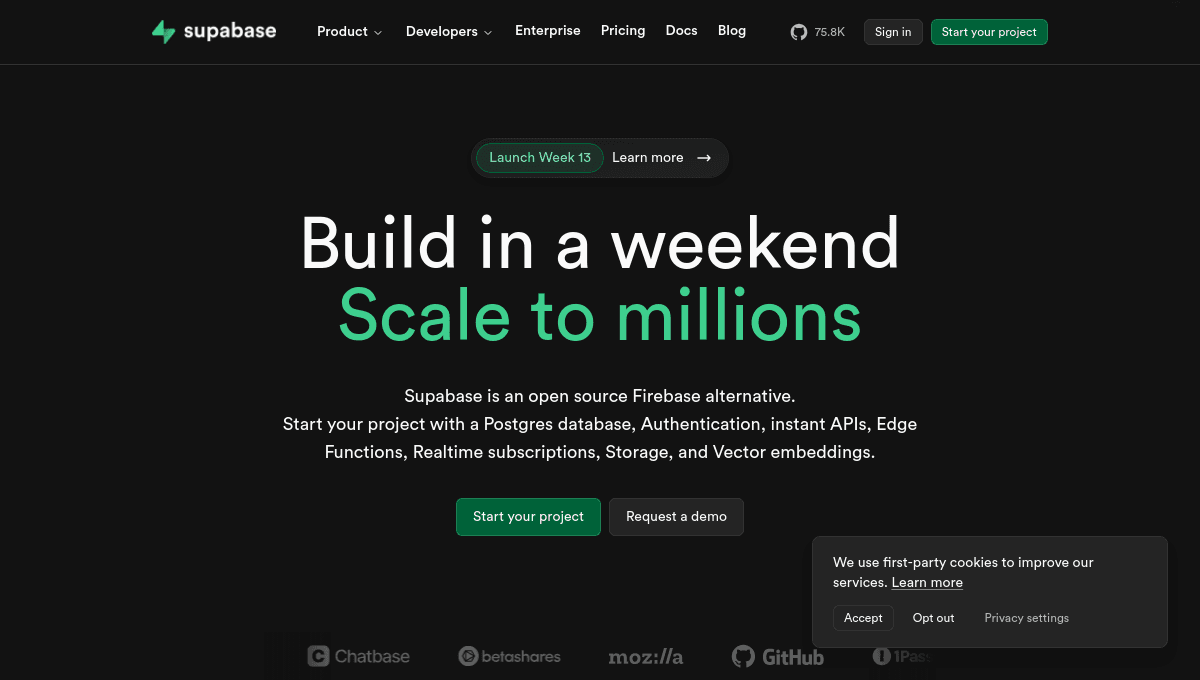
Supabase offers free database hosting with a full-featured PostgreSQL database. PostgreSQL, one of the most reliable and advanced open-source databases, powers Supabase. You don't need expert skills or a development team to get started—Supabase makes it simple.
With its intuitive table view, managing your database feels as easy as working in a spreadsheet. You can create, edit, and customize tables effortlessly. Supabase also provides a powerful SQL Editor, allowing you to write, run, and save your favorite queries for future use.
Type
- SQL
Storage
- 1GB file storage for free.
Pros ✅
- Provides simple setup and maintenance for complex databases.
- Offers real-time updates and no need to refresh manually.
- Beginner-friendly with an intuitive interface and free trial.
Cons 🚫
- Real-time features provide low performance sometimes.
- It has platform-specific features, so switching to another database is a hassle.
Neon
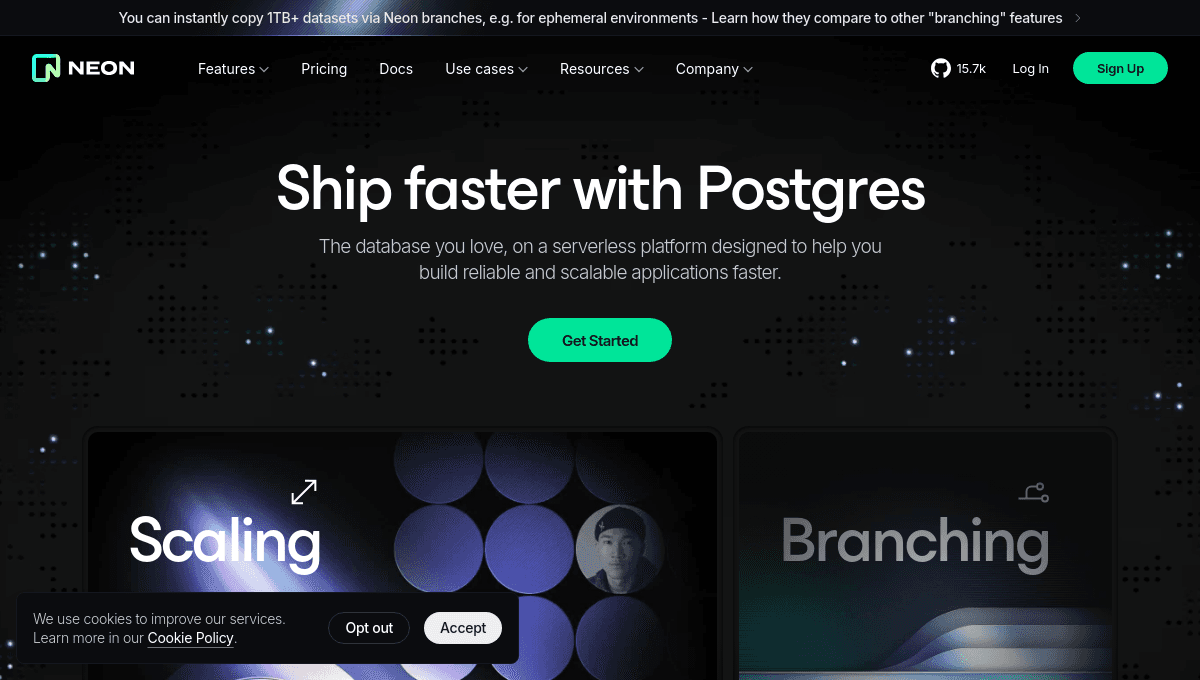
Neon is a free, fully supervised serverless PostgreSQL with a great free level. Neon splits storage and computing and delivers current developer elements such as serverless, branching, bottomless storage, and more.
Moreover, Neon is an open-source platform that allows you to complete a branch of your PostgreSQL database. It supplies increased availability without any administrative, maintenance, or scaling load. Also, the platform offers end-to-end encryption for better security.
Type
- SQL
Storage
- 0.5 GB storage for free and up to 500 GB in Pro plan.
Pros ✅
- Has a branching feature for isolated development environments.
- Offers high availability without manual intervention.
- It is a fully managed platform without any administrative load.
Cons 🚫
- The free plan has very limited storage.
- Doesn’t support NoSQL databases.
MongoDB Atlas
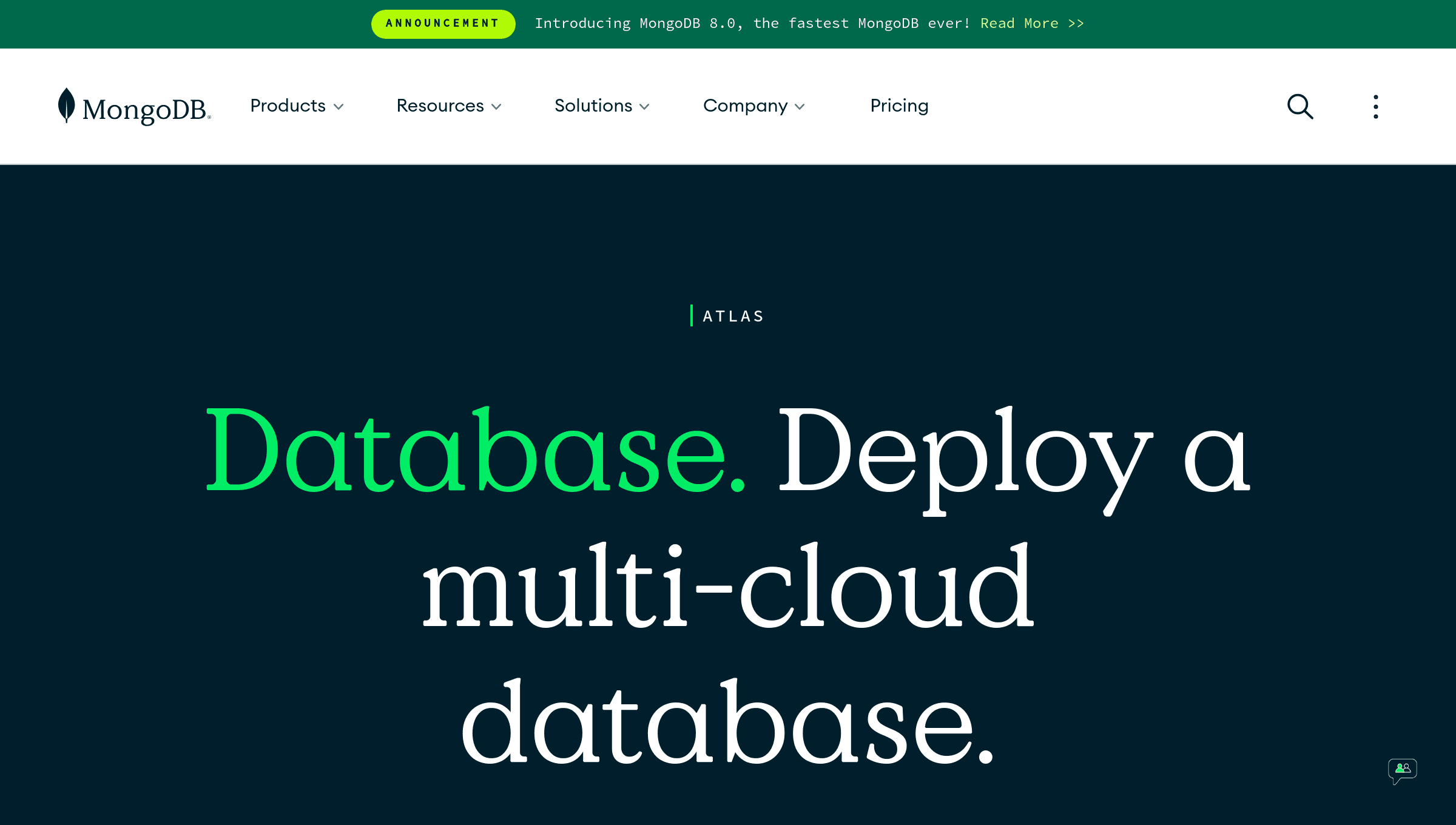
MongoDB Atlas is a highly developed cloud database service on the web. The data platform offers a multi-cloud database service that delivers resilience, scale, and the most elevated levels of data privacy and security.
With MongoDB Atlas, you can work as easily and effortlessly as you want. Also, you will get built-in best practices and intelligently automate critical operations. This will make sure your data is secure and your database is running as expected.
Type
- NoSQL database
Storage
- 512 MB (for free) and offers up to 1TB in paid plans
Pros ✅
- Ensures low latency with worldwide hosting.
- Launches the database with a single command.
- The free plan is great for beginners, startups, and small projects.
Cons 🚫
- Includes advanced setup and customization.
- May not be able to handle the large applications.
Fly.io
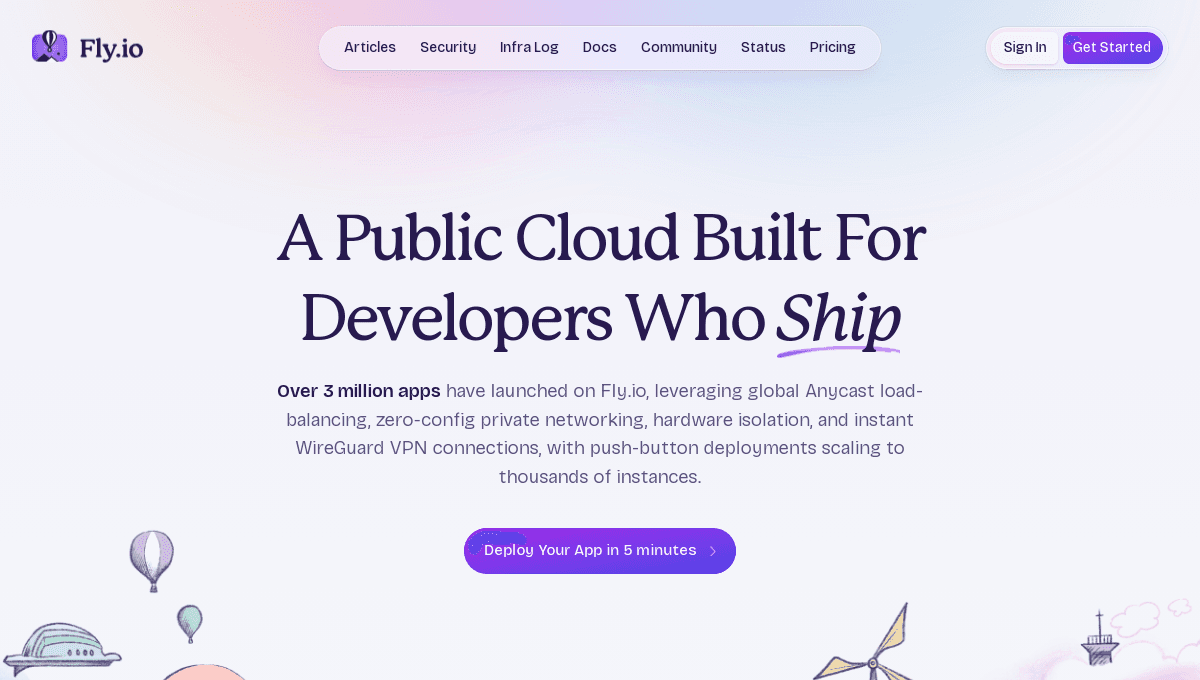
Fly.io is a free database hosting provider that is perfect for full-stack apps and databases. It uses PostgreSQL as the default database type. Moreover, the database allows you to launch an application with just a single command. The platform allows the database to an automatically deployed and manually managed.
Plus, it offers MySQL a popular relational database, SQLite a very lightweight file-based database, Redis an in-memory database commonly used for caching, and EdgeDB a graph-relational database that runs on top of Postgres. However, if you sign up for its the now-deprecated Hobby plan before the Pay-As-You-Go plan goes live, you will have a $5 free trial credit. After the free credit is used up, it will place your team into the Hobby plan.
Type
- SQL
Storage
- 256 MB for free with every plan
Pros ✅
- Offers amazing tools and experience for developers.
- Needs very little configuration and customization.
- Provides fast and automatic deployment with manual management.
Cons 🚫
- The default database may not be suitable for all projects.
- Limited scalability for large and complex options.
Upstash
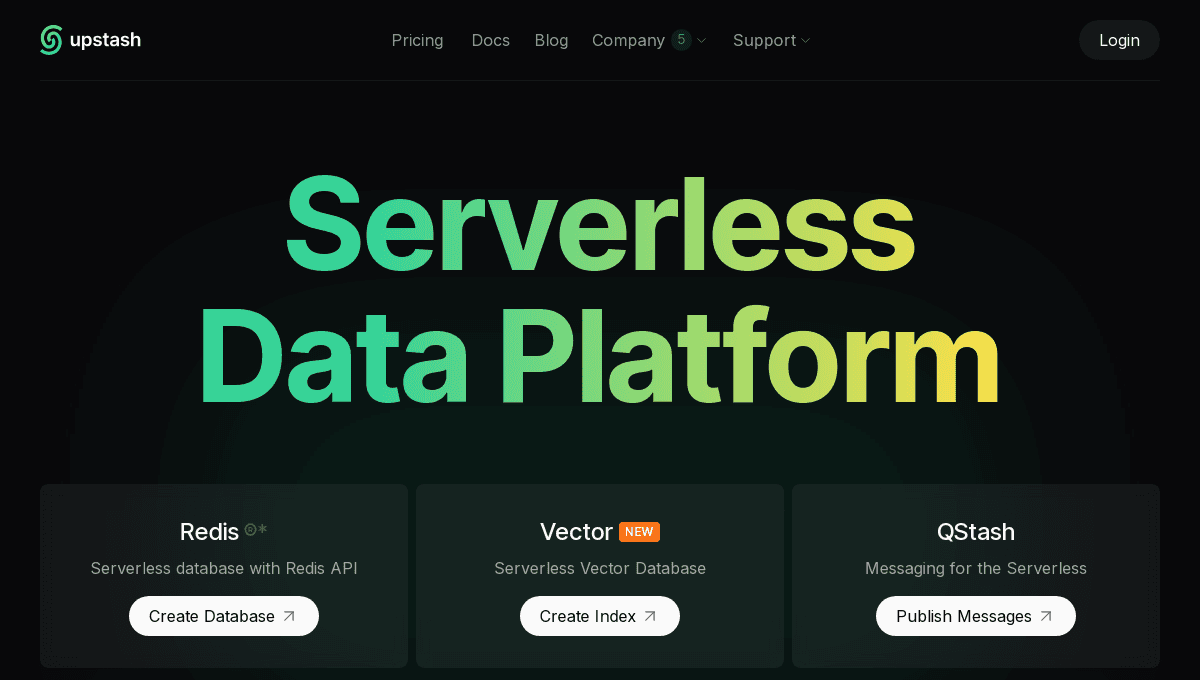
Upstash Blog is a free database-providing platform that creates data the most effortless part of your assignment. The database provider helps you to focus on more important things for your project and maintain your time limit. It supports a RESTful API and other APIs.
Also, Upstash Blog allows you to pay for what you use means you don't need to pay for any extra. The platform helps you to keep things as simple as possible but not too simple that nobody will notice.
Type
- NoSQL
Storage
- Custom storage option
Pros ✅
- Has serverless architecture and needs no infrastructure management.
- Offers low-latency performance that is ideal for real-time applications.
- Smooth integration with the edge functions.
Cons 🚫
- Not suitable for relational databases and is limited only to Redis and Kafka.
- The free plan has a usage limit that is not enough for larger projects.
Northflank
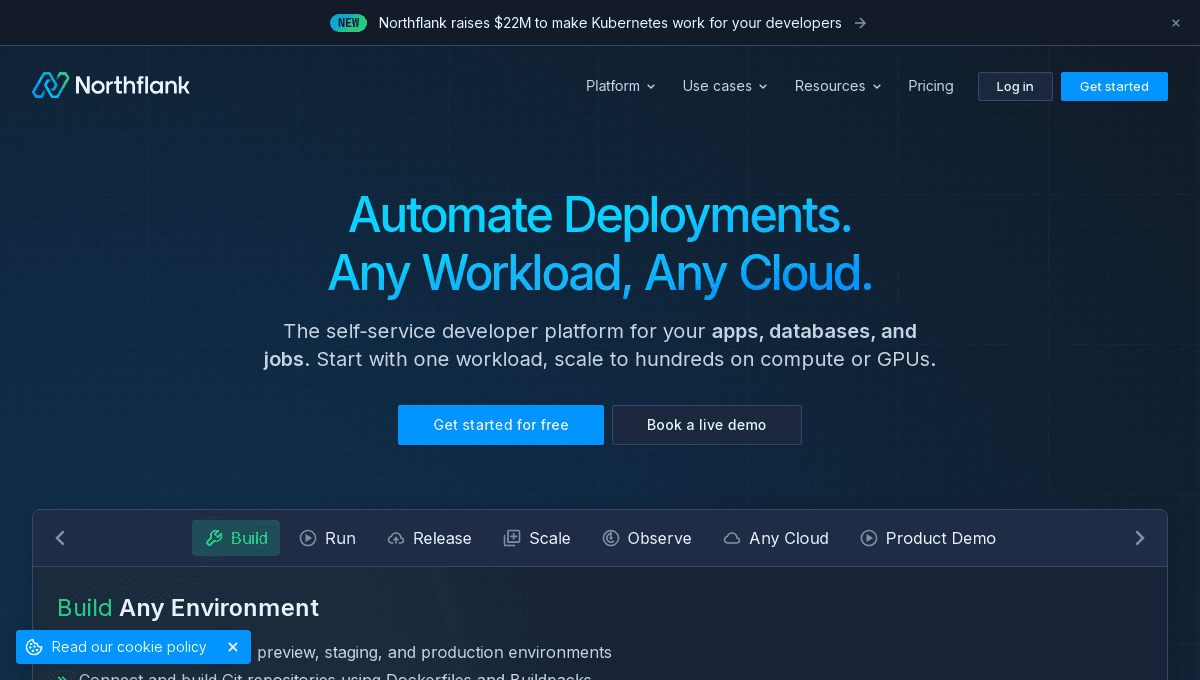
Northflank is a full-stack cloud platform designed for developers by developers. It seamlessly creates, deploys, and scales your code, jobs, and databases. It will help you to build a strong cooperative platform that redefines PaaS, CI/CD, and real-time observability assembling DevOps free to all.
Moreover, you can use any language, any framework you pick, or how your project is structured. All you have to do is add a Dockerfile and deploy it as a Northflank service. Also, you can create MySQL, PostgreSQL, and Mongo databases using their options.
Type
- SQL and NoSQL
Storage
- 512 MB - 256 GB in Pay as you go plan.
Pros ✅
- Has a branching feature for isolated development environments.
- Offers high availability without manual intervention.
- It is a fully managed platform without any administrative load.
Cons 🚫
- The free plan has very limited storage.
- Doesn’t support NoSQL databases.
Render
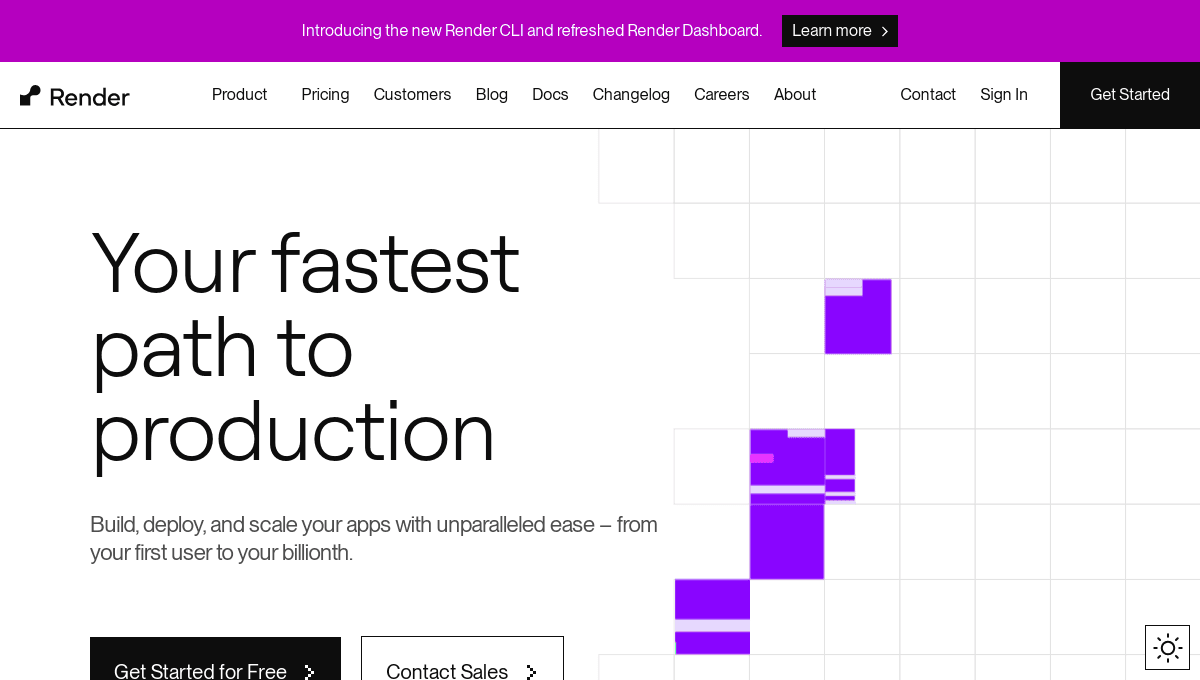
Render is a free unified cloud that helps you to build and run all your apps in a faster way. It allows you to choose the service type and deploy it in seconds. Moreover, it updates the apps automatically with the latest code. You can operate any command on a hard-and-fast schedule reliably and easily.
However, Render lets you host virtually anything with custom Dockerfiles. Together with that, it allows fully managed databases with automated backups. The platform supports static site hosting and allows easy deployment. The free tier is not suitable for real-life projects but, ok to give a try.
Type
- SQL
Storage
- Limited storage for free plans. It has more options for paid plans.
Pros ✅
- Automatically update your deployed changes with the latest codes.
- Offers fully managed databases like PostgreSQL and MySQL with auto backups.
- The custom Dockerfiles provides flexibility and consistency.
Cons 🚫
- The free plan includes very limited storage and options.
- Doesn't support NoSQL databases.
Amazon DynamoDB
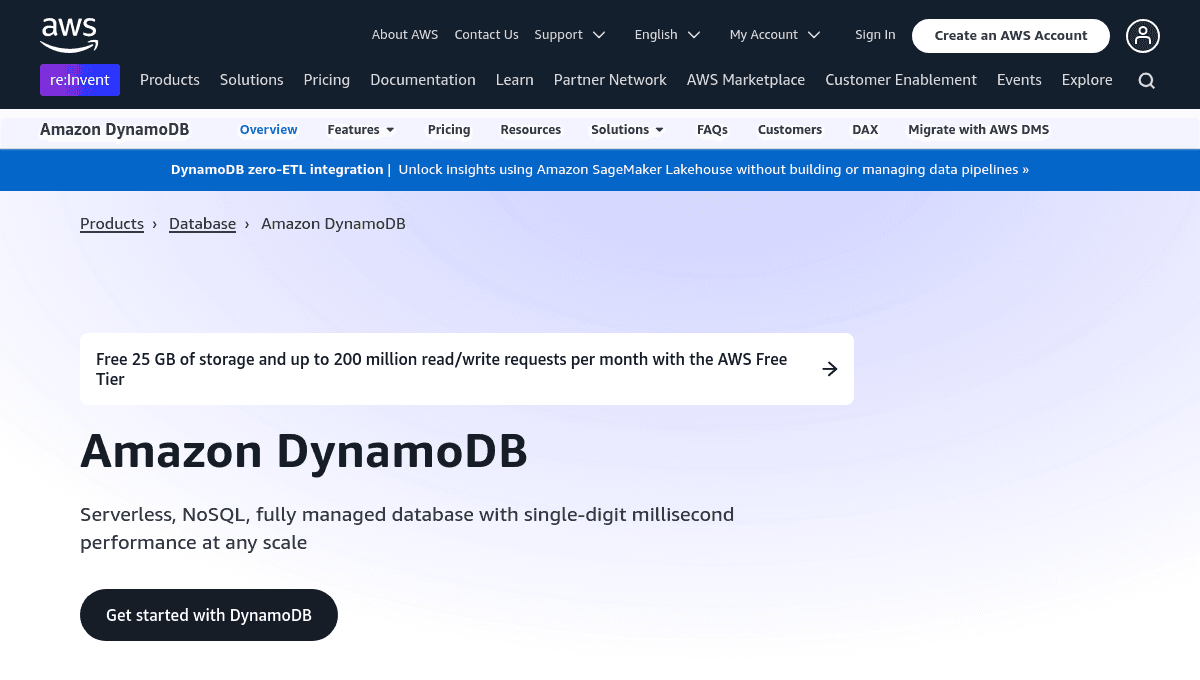
Amazon DynamoDB is a free, fast, and flexible NoSQL database service for single-digit millisecond versions at any ranking. It has a flexible schema to store data. Basically, it enables key-value and document data models. You can operate DynamoDB to create stylish, serverless applications.
However, the apps can begin small and scale globally to keep petabytes of data and tens of millions of read and write requests per second. DynamoDB was crafted to operate high-performance, internet-scale applications that would overburden traditional relational databases.
Type
- NoSQL
Storage
- 25GB
Pros ✅
- Ideal for high-performance applications and provides fast read and write operations.
- Build and scale the serverless applications without infrastructure management.
- Supports global tables and multi-region replications.
Cons 🚫
- Has a complex pricing model with storage charges and others.
- Also, it offers more limited querying flexibility.
Filess
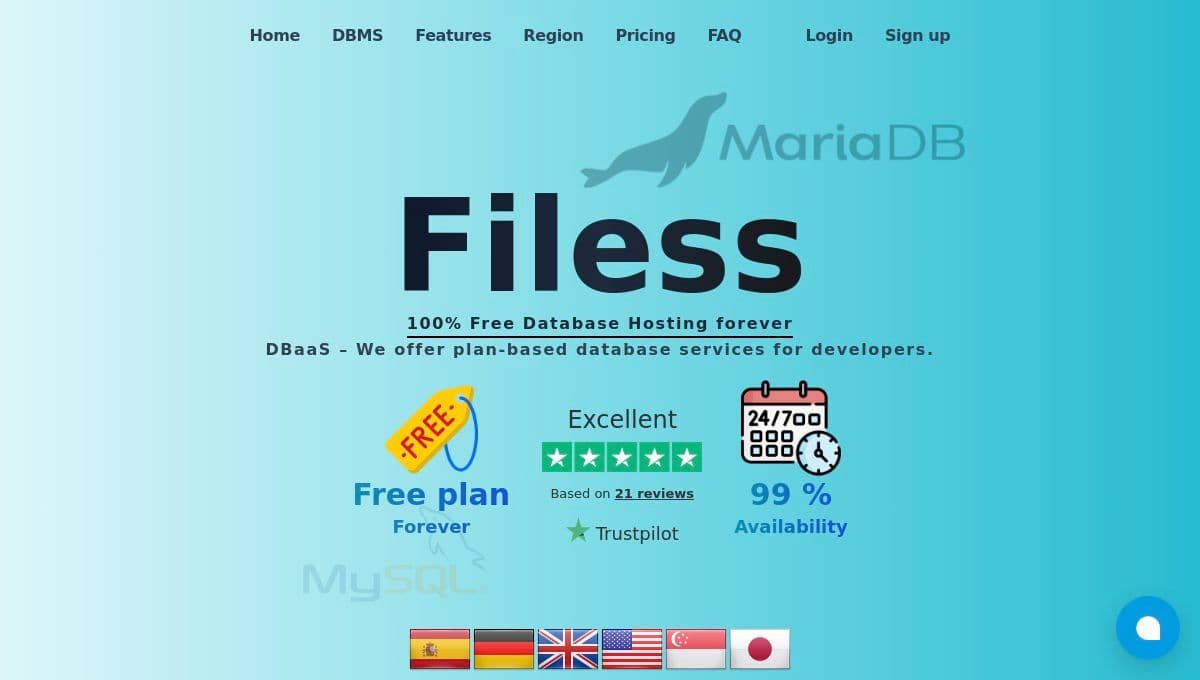
Filess is a free cloud database hosting provider. It supports MySQL, MariaDB, PostgreSQL, and MongoDB. The platform is best for small and medium projects and provides reliable storage with minimal setup.
The hosting platform provides easy scalability, better performance, and availability. However, the free plan is decent for small projects. The paid plans provide increased storage, unlimited traffic, and priority support.
Type
- SQL and NoSQL
Storage
- 10 MB for free.
Pros ✅
- Supports multiple databases like MySQL, MariaDB, PostgreSQL, and MongoDB.
- Offers reliable hosting with minimal setup.
- Easy scaling for growing projects.
Cons 🚫
- The free plan offers only 10 MB of storage.
Xata
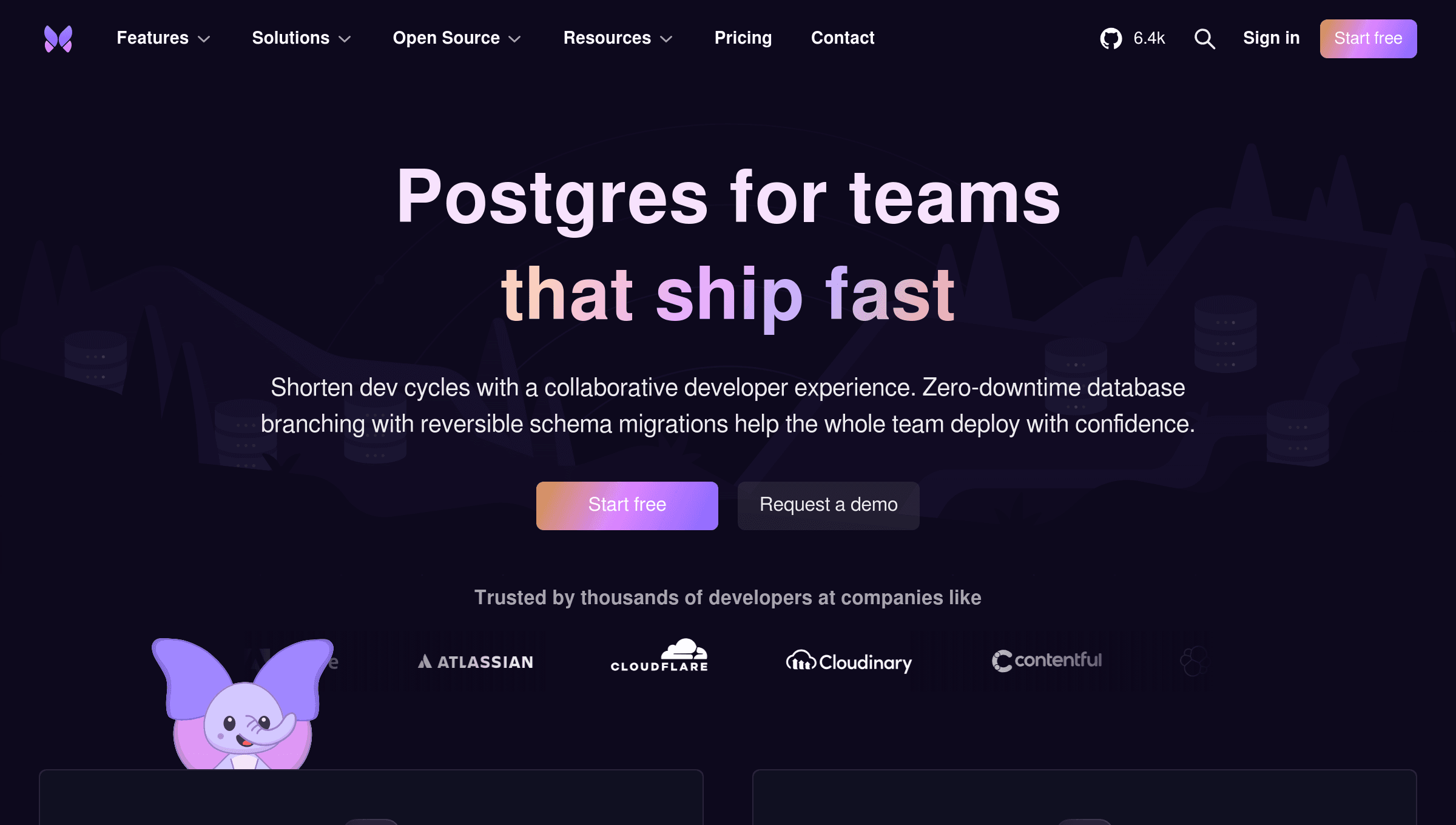
Xata is another best database hosting providers with high availability. It is a powerful platform within a managed Postgre environment. It offers a Zero-downtime database branching with reversible schema.
Furthermore, it is a cloud-based serverless database platform. It offers auto-scaling features and better functionalities. Also, it includes integrations with advanced tools for smooth workflow. The platform adds a query GPT and builds a Q&A bot to answer questions on your website.
Type
- SQL
Storage
- 15 GB for free.
Pros ✅
- Offers Zer-downtime schema updates and ensures smooth development.
- Includes real-time streaming and data synchronization.
- Adds a Query GPT to answer the questions on the website.
Cons 🚫
- Advanced features need a learning curve.
- The storge is not enough for larger projects.
IBM Cloud Cloudant
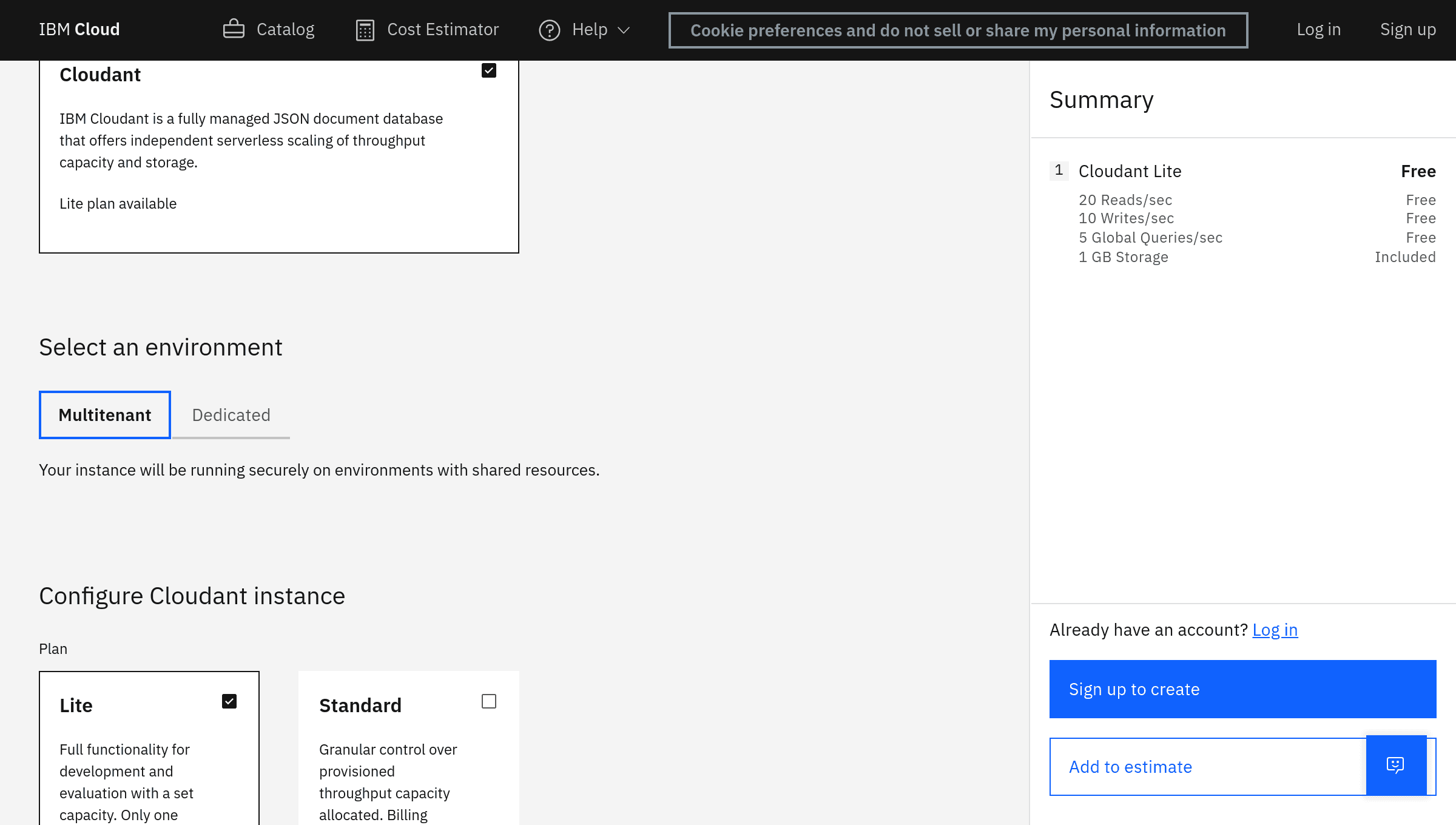
IBM Cloudant is a fully managed NoSQL database hosting provider. The platform is designed for high availability and scalability. Moreover, it is built on Apache CouchDB. Cloudant supports JSON data formats with flexibility and schema-less structure.
Along with that, the provider automatically replicates and scales data across multiple regions. It ensures reliable performance and minimal downtime. With the built-in security features including encryption and SSL certificate for better security.
Type
- NoSQL
Storage
- 1 GB
Pros ✅
- Offers scalability, functionality, and full flexibility for businesses.
- Has high availability and auto-scaling features.
- It is a ready-to-use solution that needs minimal setup and maintenance.
Cons 🚫
- The free plan is not suitable for larger projects.
- Has limited integration with other services outside of the IBM ecosystem.
Scalingo
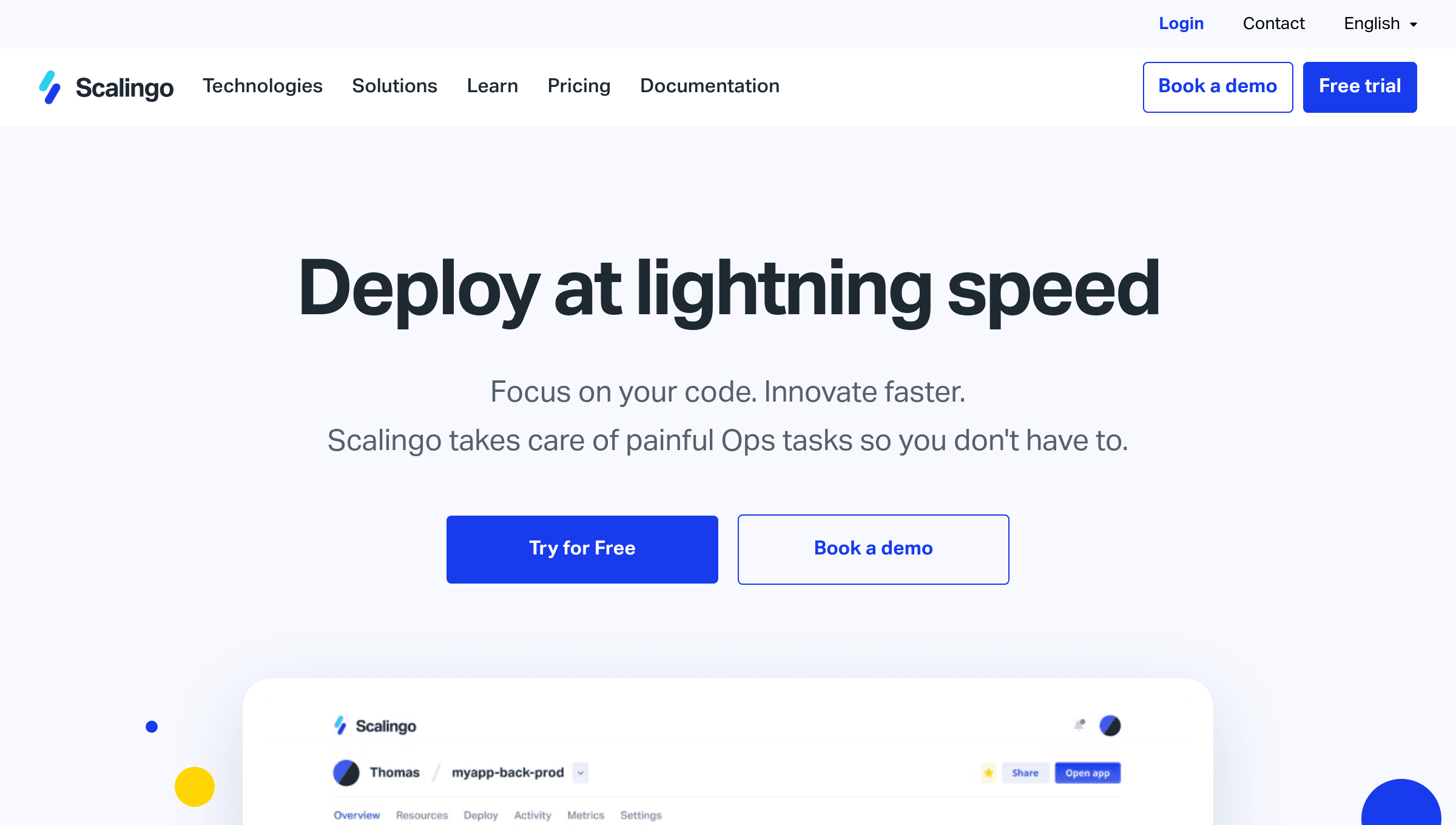
Scalingo is a fully managed PaaS cloud hosting provider for smooth app deployment, management, and scaling. It integrates with GitOps features for continuous deployment from GitHub and GitLab. Also, it has high availability and automatic scaling.
Another, the platform supports different programming languages and offers robust data management with auto-backups. It simplifies the DevOps tasks and boosts productivity. It supports automated security and offers better technical support.
Type
- SQL and NoSQL
Storage
- Custom storage options
Pros ✅
- It is a leading database hosting provider that hosts almost all the latest technologies.
- Ideal for small startups, large companies, and web developers for production-ready services.
- Includes daily backups and integrates with advanced developer tools.
Cons 🚫
- It has a complex pricing structure.
- Price increases with the scaling needs.
PlanetScale
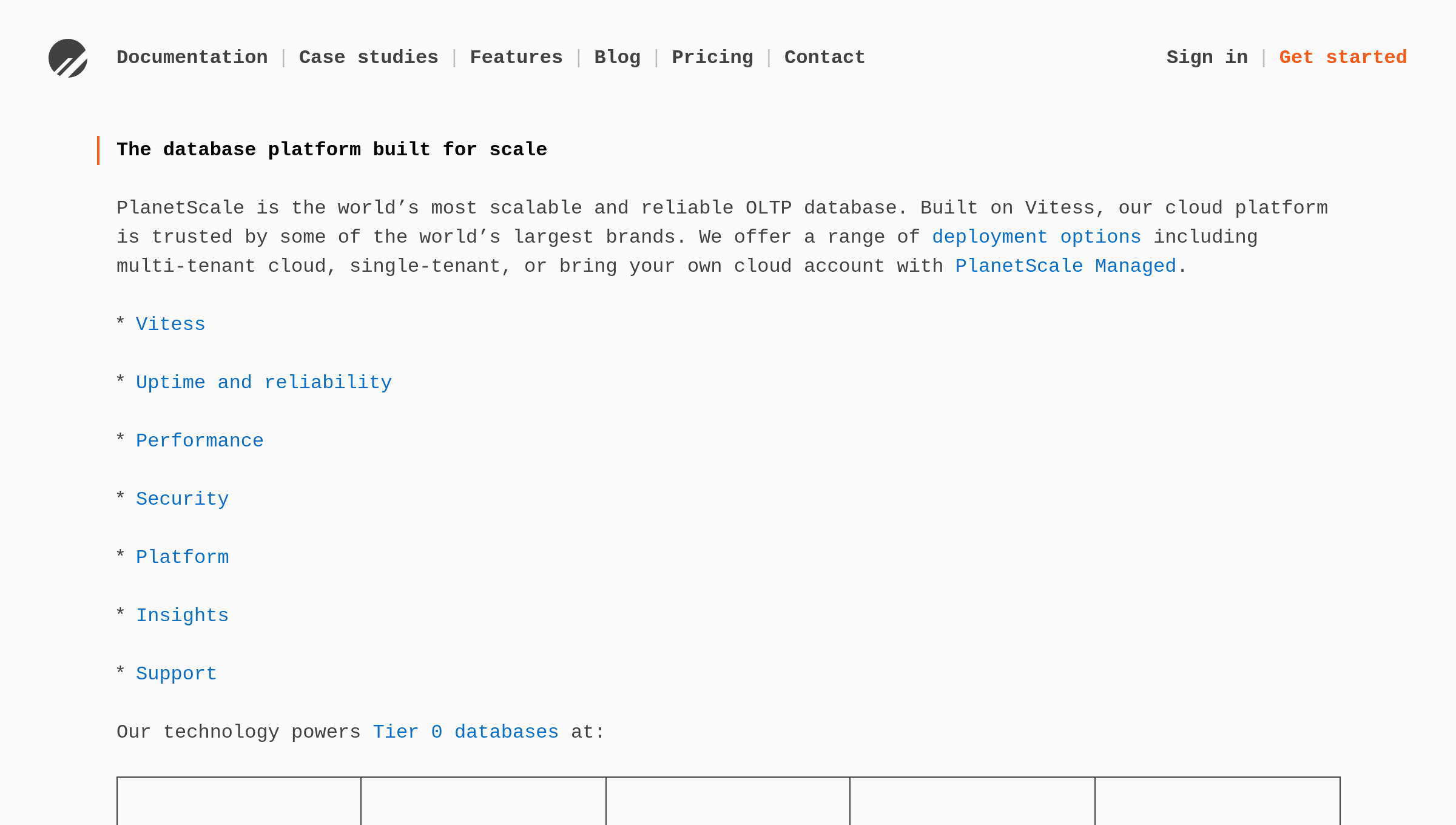
PlanetScale is a powerful MySQL-compatible serverless database. It integrates perfectly with PHP. If you want to manage your database smoothly in one place, PlanetScale is the best choice for you. The platform offers developer-first features like branching, non-blocking schema changes, and real-time query analytics.
PlanetScale offers you a huge scale and authority of Vitess. Now you can do everything without hiring a database expert to handle it for you. It provides real-time performance monitoring and analysis.
Type
- SQL (MySQL- Serverless)
Storage:
- Custom storage
Pros ✅
- Easy migration from existing MySQL database.
- Have high availability and fault tolerance.
- Offers huge scale with Vitess and ensures high performance.
Cons 🚫
- Has no GUI feature to download the database.
- It has no free plan.
Clever Cloud
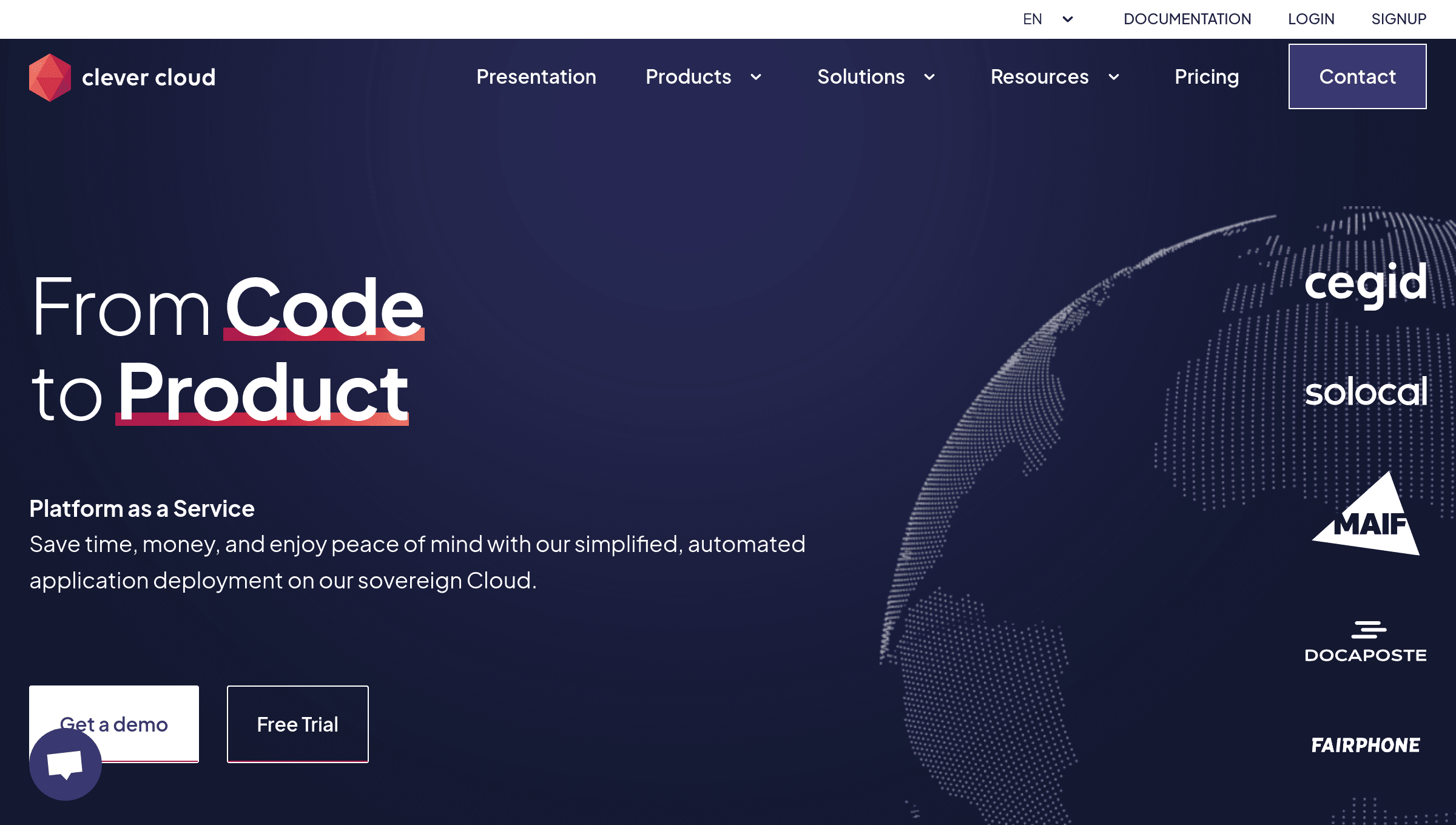
Clever Cloud is a European company that seeks to allow companies to ship way quickly their web services in the cloud. Here you are free from infrastructure to operate, a system to update, and an orchestrator to troubleshoot. The platform carries the building blocks of SaaS architectures.
Almost every kind of organization uses Clever Cloud service to deploy, operate, and scale their businesses. In addition, this platform also manages its own hardware for finer control and produces its own OS for more outstanding performances. Also, it supports popular frameworks like Django and Spring.
Type
- SQL and NoSQL
Storage
- Custom storage options
Pros ✅
- Supports a wide range of programming languages and frameworks.
- Provides automatic scaling and deployment from the Git repository.
- Comes with a built-in SSL certificate.
Cons 🚫
- Primarily focuses on European regions.
- Don’t have a free plan or trial.
Final Words
Choosing the right database hosting provider is crucial for your project’s success. Free database hosting plans are ideal for startups, personal projects, and small applications. However, they often come with limitations in features and resources.
As your project grows, you will need better scalability, more storage, and reliable backup options. Therefore, always select a provider that matches both your current needs and future growth. A smart choice today ensures smooth performance tomorrow.
